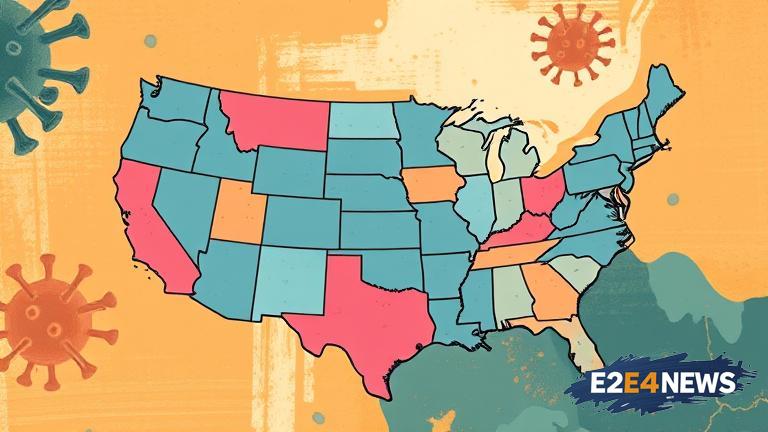The United States is witnessing a significant increase in COVID-19 cases, primarily driven by the emergence of new variants of the virus. According to recent data, the number of new cases has been steadily rising over the past few weeks, with some states reporting a substantial surge in infections. Experts warn that this trend could lead to a potential fourth wave of the pandemic, which could have severe consequences for the country’s healthcare system. The new variants, including the B.1.1.7 and B.1.351 strains, are believed to be more contagious and potentially more deadly than the original virus. The Centers for Disease Control and Prevention (CDC) has reported that the B.1.1.7 variant is now the dominant strain in the US, accounting for over 50% of new cases. The rise in cases has been particularly pronounced in states such as Michigan, New York, and Florida, where the number of new infections has increased by over 50% in recent weeks. The surge in cases has also led to an increase in hospitalizations, with some states reporting a significant rise in COVID-19-related admissions. The CDC has warned that the new variants could lead to a significant increase in cases, particularly among younger adults, who are more likely to be infected with the new strains. The agency has also emphasized the importance of continued vaccination efforts, as well as adherence to public health measures such as mask-wearing and social distancing. Despite the rise in cases, the US has made significant progress in vaccinating its population, with over 150 million people having received at least one dose of a COVID-19 vaccine. However, experts warn that the country is still far from achieving herd immunity, and that continued vigilance is necessary to prevent the spread of the virus. The World Health Organization (WHO) has also warned of the potential risks of the new variants, emphasizing the need for continued global cooperation to combat the pandemic. The US government has announced plans to increase vaccination efforts, including the deployment of additional vaccine doses to states and the expansion of vaccination eligibility to more age groups. The CDC has also issued new guidance on the use of face masks, recommending that people wear masks in public settings, particularly in areas with high transmission rates. The rise in cases has also led to concerns about the potential impact on the economy, with some experts warning that a fourth wave could lead to renewed lockdowns and restrictions. However, others argue that the US is better equipped to handle the pandemic than it was during previous waves, thanks to the availability of vaccines and improved public health measures. The situation is being closely monitored by health officials, who are working to track the spread of the new variants and develop strategies to combat them. The CDC has also announced plans to increase funding for COVID-19 research, including studies on the new variants and their potential impact on public health. As the situation continues to evolve, experts are urging people to remain vigilant and take necessary precautions to prevent the spread of the virus. The US government has also announced plans to provide additional support to states and local communities, including funding for contact tracing and testing efforts. The rise in cases has also highlighted the need for continued global cooperation to combat the pandemic, with the WHO and other international organizations working to coordinate responses to the crisis. Overall, the situation in the US is complex and rapidly evolving, with experts warning of the potential risks of the new variants and the need for continued vigilance to prevent the spread of the virus.




